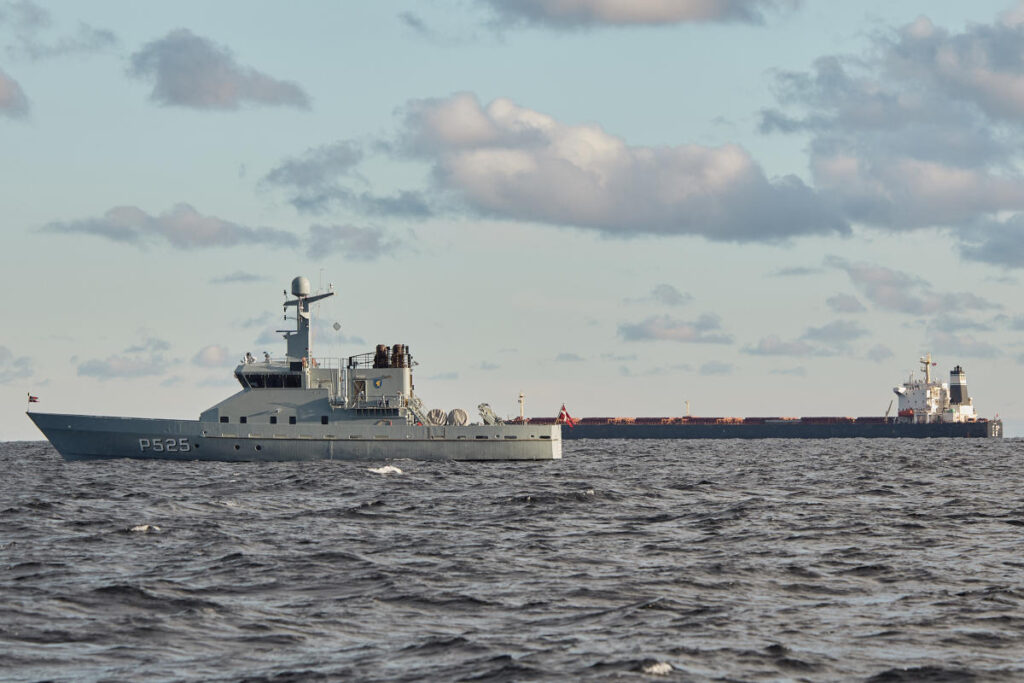In recent developments in the Baltic Sea, the Danish military has confirmed its monitoring of a Chinese bulk carrier, the Yi Peng 3, in proximity to the site of two recent undersea data cable ruptures. These ruptures, occurring between Finland and Germany, as well as Lithuania and Sweden, have prompted investigations by Finnish, Swedish, and German authorities. All these countries are NATO members, signaling a potential concern over maritime security and the implications of foreign vessels in critical underwater infrastructure. Reports of the Yi Peng 3’s presence near the rupture sites have elevated scrutiny of the incident, particularly given the delicacy of international tensions involving China.
The Danish vessel P525 was noted to have tracked the movements of the Yi Peng 3 approximately one nautical mile away from the Chinese ship, highlighting the military’s proactive stance. Danish Defense spokesman Henrik Hall Mortensen stated in an email that they are indeed monitoring the Chinese vessel. The presence of military assets in the vicinity underscores the seriousness with which NATO members are treating the ruptures, especially as they occurred in waters traversed by strategic undersea internet cables that are vital for communications and national security.
In response to inquiries from international media, Chinese Foreign Ministry spokesperson Lin Jian stated that the Chinese authorities were unaware of the situation surrounding the Yi Peng 3. He reiterated China’s commitment to maintain dialogue with relevant parties while emphasizing the importance of safeguarding the rights of Chinese vessels to navigate freely. The remarks from Beijing reflect an attempt to mitigate backlash and present a narrative of normalcy concerning maritime operations in contested waters.
The incident also evokes memories of prior undersea cable disruptions, notably a year ago, when Sweden reported a deliberate rupture of an undersea cable leading to Estonia from the Black Sea, an act deemed “purposeful” yet lacking in clarity. Such precedents may cultivate skepticism about the nature and motives behind the recent ruptures, especially when evaluated against the backdrop of increasing geopolitical competition in the region. Concerns over espionage, sabotage, or the potential for hostile actions against critical infrastructure may naturally arise among the nations involved.
Investigations into the recent ruptures will likely focus not only on the physical circumstances surrounding the incidents but also the broader implications for regional security. As NATO allies must balance communication and cooperative measures among their forces, they will need to ascertain whether any foreign entities were involved or whether the ruptures occurred due to natural causes or technical malfunctions. The strategic interests of each country will likely shape how the findings are interpreted and responded to, particularly if suspicions of intentional disruptions arise.
Ultimately, the monitoring of the Yi Peng 3 and the ongoing investigations into the cable ruptures reflect a critical moment in the intersection of maritime security, international relations, and technological infrastructure. The responses from military authorities, governmental organizations, and foreign ministries will be crucial in determining the trajectory of diplomatic relations in the Baltic region. Future dialogue and potential resolutions will likely be influenced by both the results of the investigations and the broader narrative each government wishes to convey about its national and collective security during such complex times.

